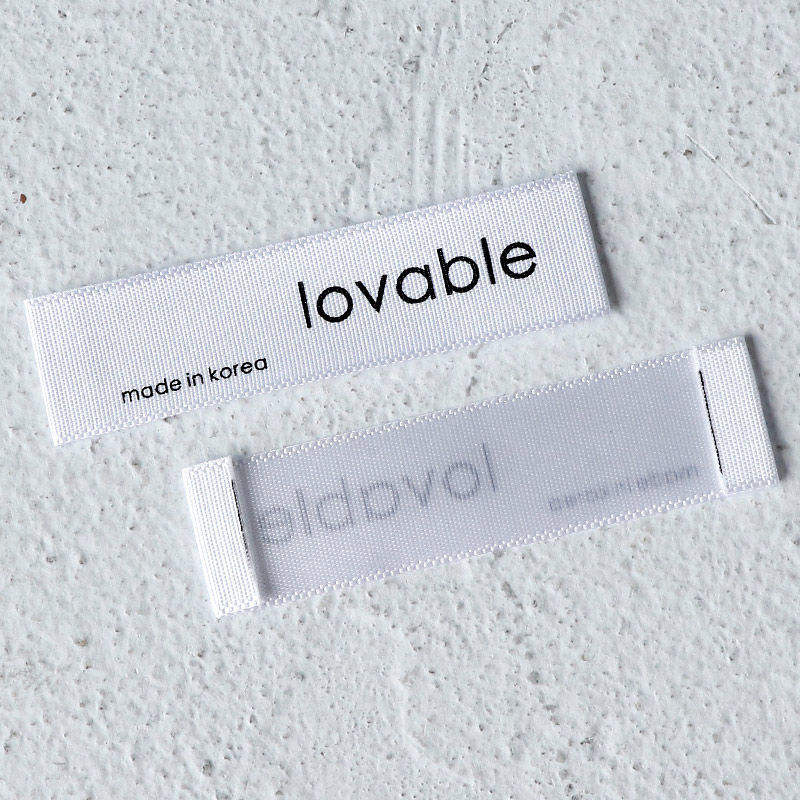
Introduction: Enhancing Brand Identity and Guaranteeing Product Quality

Clothing labels play a vital role in both establishing brand recognition and ensuring product excellence. In the competitive fashion industry, where numerous brands vie for consumer attention, clothing labels serve as a powerful tool to convey brand identity and communicate the quality of the products. This article aims to delve into the importance of clothing labels, exploring how they contribute to establishing brand recognition and guaranteeing product excellence.
1. Establishing Brand Recognition
Clothing labels are more than just a piece of fabric attached to garments; they serve as a recognizable symbol of a brand. A well-designed label with a distinctive logo and unique typography creates a visual identity that sets a brand apart from its competitors. When consumers see this label, it not only reminds them of the brand but also signifies the brand's values, reputation, and overall aesthetic. With proper placement and visibility, clothing labels enhance brand recognition, leading to increased customer loyalty and brand recall.
2. Communicating Brand Identity
Clothing labels provide a platform for brands to communicate their identity and story. Through carefully chosen words, slogans, or taglines on labels, brands can convey their vision, mission, or even social and environmental commitment. This enables consumers to make informed purchasing decisions based on aligning their values with those of the brand. By effectively communicating brand identity, clothing labels establish a deeper connection with customers, leading to increased brand affinity and engagement.
3. Enhancing Product Perceived Value
A clothing label is an indication of the brand's commitment to quality and craftsmanship. By including durable materials, fine stitching, and attention to detail in their labels, brands can enhance the perceived value of their products. Labels that exude a sense of luxury and elegance can elevate the overall impression of the garment, influencing consumer perceptions of quality. Consequently, clothing labels contribute significantly to differentiating a brand's offerings from competitors and justifying premium pricing.
4. Assuring Product Quality
Clothing labels serve as a form of quality assurance for consumers. They often include essential information such as fabric composition, care instructions, and sizing details. This information helps shoppers make informed decisions about the suitability of the product for their needs. Additionally, reputable brands often incorporate authenticity labels or holograms, which indicate that the product has undergone rigorous quality control measures. Clothing labels, therefore, play a crucial role in building consumer trust and confidence in the brand's reliability and product excellence.
5. Strengthening Brand Loyalty
Clothing labels create a sense of association and ownership among consumers. Millennial and Gen Z consumers, in particular, seek brands that resonate with their personal identity and values. By integrating aesthetically pleasing, recognizable labels, brands can foster a sense of loyalty and belonging among their target audience. Furthermore, labels serve as a lasting reminder of positive customer experiences, making it more likely for customers to repurchase or recommend the brand to others, resulting in increased brand loyalty.
Conclusion: Harnessing the Power of Clothing Labels
Clothing labels have transcended their initial purpose of providing basic garment information; they have become a crucial element in establishing brand recognition and ensuring product excellence. With the ability to communicate brand identity, enhance perceived value, assure quality, and strengthen brand loyalty, clothing labels serve as a powerful tool for fashion brands to differentiate themselves in a competitive market. Therefore, investing in well-designed and thoughtfully crafted labels is not only essential but also pivotal in shaping a brand's success and future growth.
customization clothing label manufacturer custom made clothing labels custom clothing labels zhongxin clothing label manufacturer
